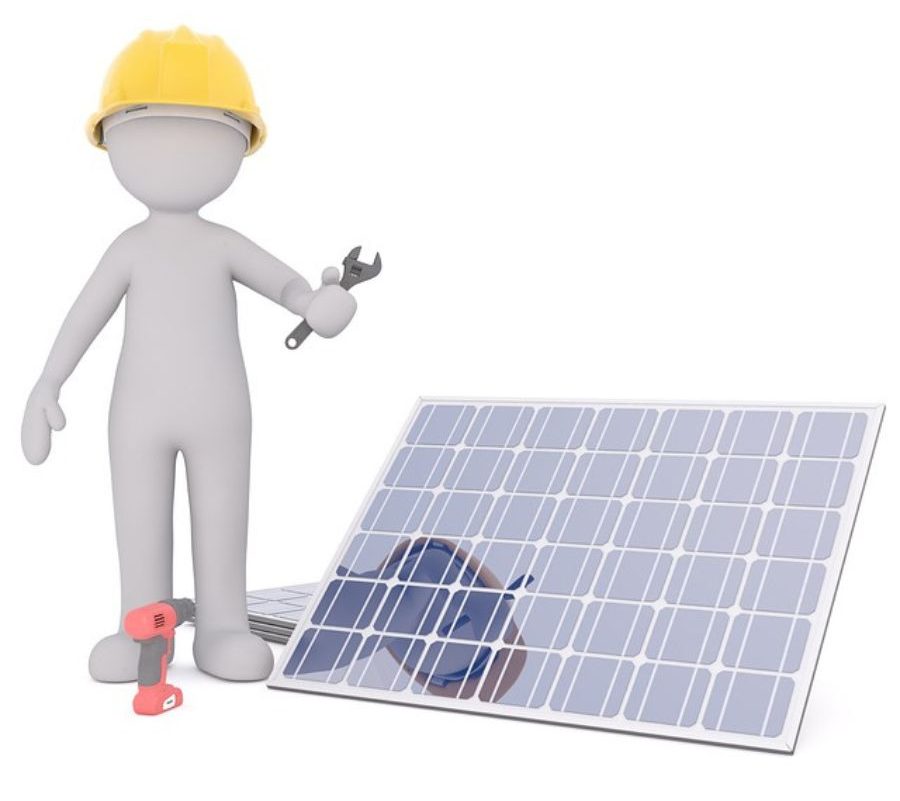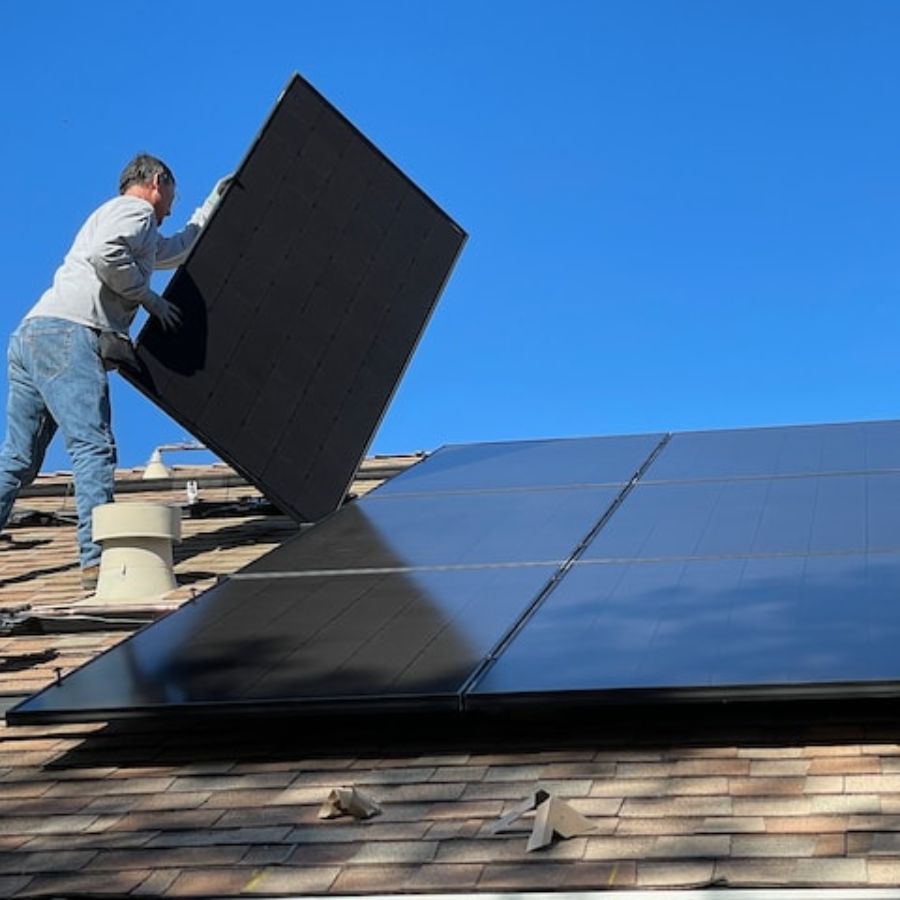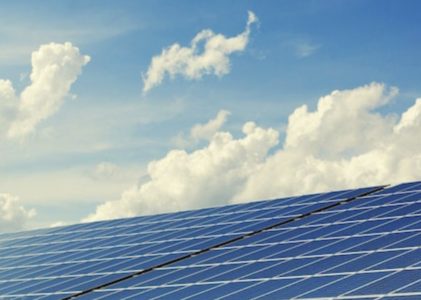Living off the grid in a cozy cabin amidst the picturesque landscapes of Canada is a dream come true for many. In recent years, advancements in solar energy technology have made it increasingly feasible to power cabins and remote dwellings with renewable energy sources. Solar power, in particular, has emerged as a reliable and sustainable solution for off-grid living in Canada. And as CanBio suggests, proper positioning of solar panels is vital for optimum output.
In this article, we will explore the benefits of solar energy, government initiatives, and educational resources that can help you embrace solar power for your Canadian cabin.
Solar Power Basics

Solar power is a fundamental solution for off-grid cabins, utilizing photovoltaic (PV) cells to convert sunlight into electricity. These cells’ installation happens on solar panels strategically positioned to maximize sunlight absorption. The energy generated by the solar panels can be stored in batteries, ensuring power availability during cloudy days or at night when the sun isn’t shining.
Power inverters play a vital role in converting the stored direct current (DC) electricity into alternating current (AC) electricity, suitable for powering various devices in the cabin. By embracing solar energy, off-grid places can operate independently from the traditional solar grid power system, relying on sustainable and abundant solar resources. This shift to cabin solar reduces reliance on grid solar power and promotes environmental sustainability.
Benefits of Solar Energy
Environmental Sustainability
Solar energy offers environmental sustainability as a clean and renewable resource with no harmful emissions. Switching to solar power in cabins reduces carbon footprint, contributing to a greener future. With solar exposure, cabins can utilize solar setups to generate more power, tapping into Canada’s abundant renewable energy potential for climate change mitigation and environmental protection.
Energy Independence
Solar power provides energy independence for remote cabins and off-grid dwellings. By installing solar panels with a built-in battery charger, cabin owners can generate electricity on-site and reduce reliance on external power grids. With energy storage capabilities, a solar array offers a reliable and cost-effective solution, liberating cabins from traditional energy sources like diesel generators.
Cost Savings
Off-grid, Cabin Solar offers significant cost savings in the long run. Despite the initial investment in solar panels and batteries, operating costs are minimal due to the abundance of free sunlight. Government incentives and rebates further offset upfront expenses. According to Natural Resources Canada, a well-designed cabin solar system with a power inverter can yield a return on investment within 10 to 20 years, making it a financially viable and sustainable choice for energy-conscious cabin owners.
Government Initiatives and Support
Federal Solar Programs
The Canadian government has implemented several initiatives to encourage the adoption of solar energy across the country. The Federal Solar Program provides financial incentives, such as tax credits and grants, to support residential solar installations. These incentives vary by province and are subject to change, so it’s essential to consult government websites or local authorities for up-to-date information.
Provincial and Territorial Incentives
Many provinces and territories in Canada offer additional incentives to promote solar power adoption. For example, the Ontario MicroFIT program provides long-term contracts and favorable feed-in tariffs for small-scale solar electricity producers. British Columbia’s SolarBC program offers rebates for residential solar installations, while Quebec’s Rénoclimat program provides financial assistance for energy-efficient renovations, including solar panel installations. Researching the specific programs available in your province or territory can help you maximize the benefits and incentives for your cabin.
Educational Resources
Natural Resources Canada
Natural Resources Canada (NRCan) is an excellent resource for information on solar energy in Canada. It provides comprehensive guides on solar power, including sizing and installing solar PV systems. NRCan also offers resources on federal incentives, provincial programs, and renewable energy regulations. The website’s Solar Energy section provides detailed information on solar technology, market trends, and case studies showcasing successful solar projects.
Canadian Solar Industries Associati
Canadian Solar Industries Associati (CanSIA) is a national industry association representing solar energy companies in Canada. Their website provides valuable information on solar technology, market trends, and industry news. CanSIA also organizes conferences and events that offer educational opportunities for individuals interested in solar power. Connecting with industry professionals through CanSIA can help you gain insights into the latest developments and best practices in solar energy.
Local Community Renewable Energy Groups
Joining local community renewable energy groups can provide invaluable support and knowledge-sharing opportunities. These groups often organize workshops, seminars, and community-driven solar projects. Connecting with like-minded individuals can help cabin owners navigate the intricacies of solar power installations specific to their region. Local groups may have first-hand experiences and insights that can guide you through going solar for your cabin.
Choosing the Right Solar System for Your Cabin

When considering solar power for your cabin, it’s essential to determine the appropriate system size and components based on your energy needs. Factors such as cabin size, location, and energy consumption patterns are significant in designing an efficient solar system. Consulting with a solar energy professional can help determine your requirements’ optimal system size and components.
Load Analysis
Performing a load analysis is crucial to understanding your cabin’s energy consumption. Identify the appliances, lighting, and other electrical devices you regularly use and calculate their energy requirements. This analysis will help you determine the number of solar panels and battery capacity needed to meet your energy demands.
Solar Panel Sizing
The size of your solar panel array will depend on factors such as available roof or ground space and the desired energy output. Solar panels come in various wattages, so choosing the right size is vital to ensure sufficient power generation. One should also consider factors like shading, tilt angle, and orientation during installation for optimal solar panel performance.
Battery Storage
Batteries are essential for storing excess solar energy generated during the day for use at night or during cloudy periods. Deep-cycle batteries designed for renewable energy applications commonly help in off-grid cabins. The battery bank’s capacity should be sufficient to meet your energy needs during periods of low solar generation.
Charge Controller and Inverter
A charge controller regulates the energy flow between the solar panels and the batteries, preventing overcharging and damaging the battery bank. An inverter converts the DC (direct current) energy stored in the batteries into AC (alternating current) for powering your cabin’s electrical devices. Choosing efficient and appropriately sized charge controllers and inverters is crucial for your solar system’s overall performance and longevity our solar system’sMaintenance and Monitoring.
Regular maintenance and Monitoring are essential to ensure your solar system’s optimal regular maintenance and Monitoring are critical for performance and longevity. Here are some indispensable maintenance considerations:
Cleaning
Periodically clean the solar panels to remove dust, debris, or other obstructions that may reduce efficiency. Consult the manufacturer’s guidelines for appropriate cleaning methods and precautions.
Battery Maintenance
Monitor the battery bank’s charge levels and ensure proper maintenance, including checking electrolyte levels (if applicable) and keeping connections clean and secure.
System Monitoring
Consider installing a monitoring system that allows you to track your solar system’s performance. Monitor your solar system’s performance, energy production, battery status, and overall system health to enable you to identify and address any issues promptly.
Conclusion
Harnessing solar power or your Canadian cabin brings you closer to nature and empowers you with sustainable energy solutions. By understanding the basics of solar power, exploring government initiatives and incentives, and leveraging educational resources, you can embark on a successful solar journey for your cabin.
Remember to conduct a thorough load analysis, choose the right solar system components, and establish a maintenance routine to maximize the benefits of solar energy. Embrace the sun’s power and embark on a sustainable, self-sufficient, off-grid living experience in your Canadian cabin.
With the availability of government support, educational resources, and professional guidance, solar power for your cabin is well within reach. Start planning your solar installation today and enjoy the rewards of renewable energy in the beautiful Canadian wilderness.


